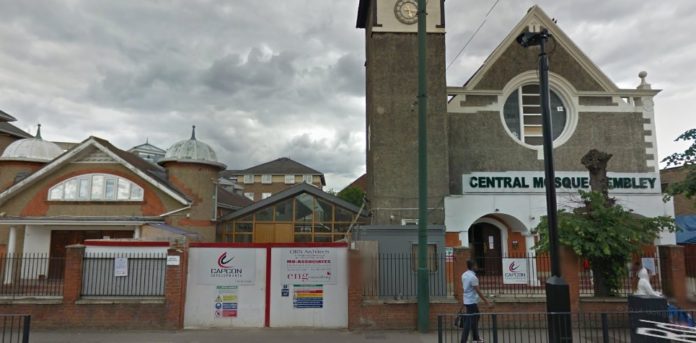An employment tribunal has dismissed an unfair dismissal claim by the former imam of Wembley Central Masjid as “not well-founded.”
The verdict comes after a long-running dispute between the management committee and supporters of the imam which has resulted in violence, protests at the mosque, a financial boycott, the temporary closure of the mosque and legal proceedings.
In 2019 Wembley Central Masjid authorities and congregation members were involved in an extraordinary row involving scores of worshippers and the police. Video emerged of congregation members shouting and pushing and shoving each other inside the mosque after the imam was sacked.
Imam Abdul Sattar was fired by Wembley Central Masjid in February 2019 for failing to provide Nikah certificates and information on speakers, using the mosque’s letterhead and stamp without authorisation, refusing to resolve a legal dispute, and refusing to allow access to change the locks on his office door and allowing it to be accessed by an unauthorised person.
A tribunal in Watford last week found that the dismissal was “fair” as the imam was aware that he had to comply with “reasonable instructions from the management committee,” and he was invited to an investigation and disciplinary meeting but failed to attend.

Imam Abdul Sattar, who had been an imam at the masjid for over 20 years, argued that the committee intended to dismiss him all along and was motivated by some ill-will towards him.
He also argued that as most management committee members and trustees were followers of Tablighi Jamaat, they decided to target and victimise him in the hope that he would leave.
Subscribe to our newsletter and stay updated on the latest news and updates from around the Muslim world!
But during evidence to the tribunal, it emerged that the Charity Commission had expressed concerns to the masjid about certain speakers appearing because of alleged “extremist views.”
The tribunal also found that from reading the minutes of committee meetings, the claim that the imam was being persecuted by those who followed Tablighi Jamaat could not be substantiated.
Judge Bedeau concluded: “The effective date of dismissal was 1 February 2019. It must be borne in mind that the situation in 2018 and 2019 was getting beyond control. There were regular protests outside of the masjid involving the police. The masjid was split between those who followed the claimant and those who supported the management committee.
“Based on the evidence before me there was also a serious breakdown in the employee employer relationship which seemed to be irretrievable. Under those circumstances, it is difficult to see a way forward as attempts at trying to resolve matters informally had been rejected.
“At the end of the day management committee had to manage the masjid. Even if the three reasons found at the appeal stage in support of the claimant’s dismissal, did not apply, the apparent irretrievable breakdown in the relationship between the claimant and the management committee, would inevitably have necessitated the claimant’s dismissal.
“Accordingly, I have come to the that the claimant’s unfair dismissal claim is not well-founded and is dismissed. Any hearing listed remedy is hereby vacated.”






















